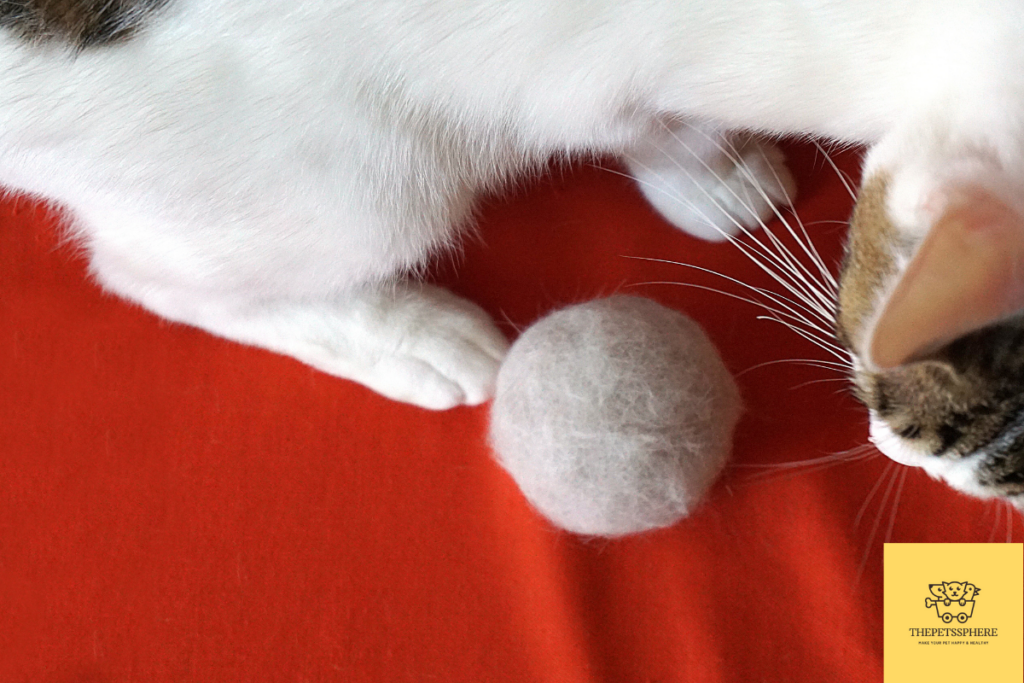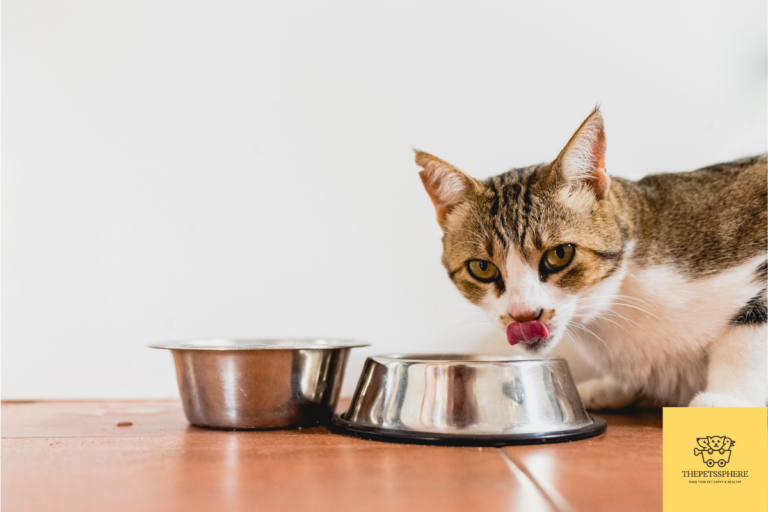Cats are one of the most popular pets in the world. They can be a lot of work, but they also provide us with hours and hours of entertainment. However, there is one thing that has been bothering pet owners for years- why do cats gag when they smell food? In this article we will talk about why this happens and what you as a pet owner can do to reduce it.
Cats gag when they smell food because their olfactory system is more powerful than ours. They have a wider range of scents, including those that humans can’t detect. Cats often take a whiff before deciding if it’s something they’ll eat or not. If a cat gags at the smell of its food, it can mean they find that flavor disgusting.
If you’ve been buying expensive treats and your furry companion still isn’t interested in them, stick to less expensive foods with simpler flavors like canned meat or dry kibble (if he has been eating dry kibble without issue). Keep in mind that “gagging” may also be due to an infection as well. Cats who paw at their mouth, drool or have trouble swallowing may be experiencing an issue.
7 Reasons Why Do Cats Gag When They Smell Food
Cats are very particular about what they eat, and most people would agree that it is not just because of their finicky nature. They have actually been bred to be this way by humans who wanted a more efficient mouser. If you haven’t noticed, cats have sensitive noses which is why they tend to gag when food smells too strong for them or if the smell doesn’t match what it usually eats. In this blog post we will list 7 reasons why cats gags when they smell food?
1) Strong Sense of Smell
A cat’s sense of smell is much stronger than ours. So the strong scent can overload its nose and cause pain and discomfort.
2) Eating Habits
Cats also get used to eating certain types of foods at a young age, which is why when they smell something new, their sense of smell is triggered to vomit. In that case, they need some time to get acquainted with the new type of dishes just like humans!
3) Unfamiliar Texture
Wise cats often don’t like the feeling of something slimy against their teeth.
They may not like the texture of certain foods such as meats, so it causes gagging reflexes and vomiting.
4) Overeating
Cats are well known for their love of food, but did you know that when they gulp down a large meal it can cause them to gag? Cats will often vomit or throw up after eating too much at one time because the body cannot handle all the food in its stomach. It’s important to feed your cat on an appropriate schedule and only give him as much as he needs.

5) Hairball
What is a hairball? It’s the name we give to a clump of fur, food and other substances that collect in the stomach and intestines of cats. Hairballs are not harmful but they can cause your cat to gag or throw up, especially if it has been grooming itself excessively. The reasons why hairballs happen are fairly straightforward: our pets swallow their own hairs which stick together with saliva to form a ball.
3 Reasons Why Hairballs Can Cause A Cat To Gag
A) Cats often cough up hairballs when they have too much fur on their tongue or throat that needs to be removed.
B) Cats may also gag if there is something stuck in their mouth or throat like string, cloth, or even food debris from an earlier meal. Sometimes these items can stick together and form a lump that blocks the airway when it’s coughed up with the hairball.
C) Finally, some cats might also gurgle as they swallow because of inflammation of the pharynx (throat).
The best thing you can do to prevent all these issues is by brushing your pet regularly. This will reduce the amount of fur that accumulates while also keeping its throat clear from things like string or food debris.
6) Gagging Due to Bacterial Infection and Inflammation
For pet owners, it is important to know the signs of distress that your cat may show. One symptom of a bacterial infection in cats is gagging or coughing up mucus and phlegm. There can be various reasons for which a cat might exhibit these symptoms and what you can do if they happen.
First, bacteria could be causing an upper respiratory tract infection which causes inflammation in the nose and throat.
Second, there could be something stuck in their mouth or on their tongue like hairballs which leads to gagging because they are trying to vomit them out while still swallowing air at the same time.
Thirdly, some medications can cause vomiting as one of its side effects so always inquire about this when talking with your veterinarian.
Tip: If your cat is gagging and coughing up mucus, you should take them to the vet. If it happens again after treatment has been given then call a veterinarian right away because this could be a sign of something more serious like pneumonia or even cancer.
7) Gagging Due to Gastrointestinal Upset
We all know that cats are not just cuddly companions, they’re cute and curious little creatures that need to be taken care of. One aspect of this is making sure their stomachs are in a good place.
Now we will discuss 3 reasons why cats might gag, how you can tell if your cat has a stomach problem, and what steps you should take if your cat is gagging.
The first reason for gagging could be due to an obstruction in the esophagus or throat which means it’s important for owners to know some signs of danger so they can seek emergency help as soon as possible if necessary.
The second reason could be because the food was too hot or cold when it was served which means there needs to be better temperature control when serving food.
The third reason why cats might gag is because there are too many items on their plate which means you should limit the number of different foods they eat at once, and also serve them in small portions so that it’s easier to chew and swallow.
What Can You Do To Reduce Gagging?
Even though gagging is a natural part of life for them, there are some things you can do to lessen it.
First off all, make sure that if your cat eats wet and dry foods in different dishes then place one dish higher than the other so it smells less strong.
Second, try using more water or covering up sauces with cooking spray before serving your pet’s meal. This will help to reduce odor as well as spread out its taste on its tongue.
Thirdly, rotate between feeding your cat the same type of food over time instead of eating from just one flavor every day where this sense becomes dulled by repetition. Also consider using a covered dish or foil to help reduce the smell.
Fourth, keep up with brushing them. Brushing your kitty regularly will cut down on loose hairs in the air which will come back around and get stuck in your mouth.This will in turn reduce gagging in your cute kitty.
Fifth, give them wet food instead of dry food. This will minimize any smells coming out of their mouths as well as keep their teeth cleaner. This will definitely help them to enjoy the food while you offer them.
Finally, if your cat is still gagging and not eating even after trying these tips then please consult with an expert about why cats gag when they smell food.
Medical Reasons Of Excessive Gagging in Cats
Cats are typically very clean animals, but sometimes they gag. Gagging in cats can sometimes be a sign of an underlying medical condition that needs to be addressed. Now we will go over some disorders and symptoms related to abnormal gagging in cats.
Gagging is the act of making forceful contractions with your throat muscles so that you forcefully expel food or other objects from your mouth. Cats might gag when eating treats too quickly or if their stomachs are full, among other reasons.
There are a number of disorders relating to cat gagging including brain tumors, allergies, dry cough, vomiting reflexes and feline hyperesthesia syndrome (FHS). Common symptoms for these conditions include excessive drooling, lethargy/depression as well as seizures.
If your cat has gagged or thrown up three times in an hour, take them to the vet and follow up with a specialist. If you have seen some of these symptoms listed earlier then it might be time for a check-up; call your veterinarian as soon as possible if this is the case!
Some Additional Tips to Follow
If your cat has gagged or thrown up three times in an hour, take them to the vet and follow up with a specialist.
If your cat gags during or after eating food, it might be because they were given too much of that type at once.
Gagging can also happen when cats eat something inappropriate like string or cloth. It’s important to keep those things out of reach of your cat.
Cats might also have a gag reflex when they smell food that’s been sitting out too long or gone bad because the bacteria on it can make them sick so keep an eye on leftovers to make sure they’re still good.
Similar articles to this topic
- When do tabby cats stop growing
- Can cats hold their pee and poop
- How long do cats hide their kittens
- How to shave a cat that hates it
- Keep your cat safe during blizzard
- Cats ticklish spot
- Why does my cat lick my dog so much
- Why cats hate singing
- Why do cats play in clean litter box
- Will cats watch tv
- Why does my cat run sideways at me
- Why does cats like to look out windows
- How to stop your cat from scratching doors
- Does my cat have add
- Why do cats meow like babies
- Why do cats lick fleece blankets

